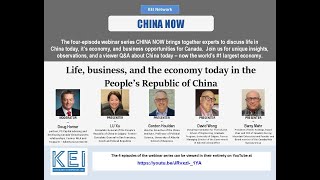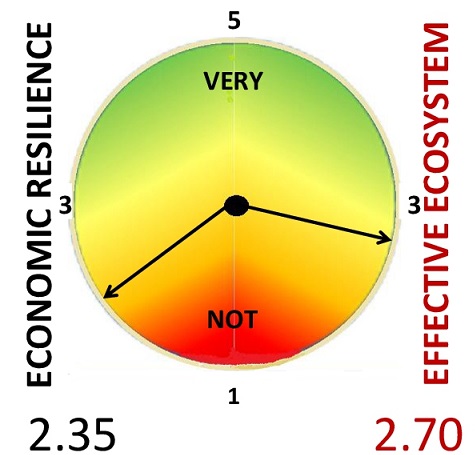
Embracing Innovation and Evolution
Embracing innovation is frequently cited as essential for organizations to adapt to change. Yet as we are seeing, Learning Language Models such as ChatGPT, reflecting the emergence of Artificial Intelligence as a threat to: jobs, human welfare, and possibly as an existential threat to mankind. Many view that the AI as an innovation should NOT be embraced, but rather that it must be managed - slowed down or halted altogether. Others see it as an unmanageable evolutionary force.
Peter MacKinnon shared HERE his article highlighting the appeal of embracing applications of AI for the good of mankind but also what regulators need to do to slow AI research or halt it altogether in light of AI's threats. He cites several principles warranting ethics and responsibility, cooperation and collaboration, but notes the conundrum of the lack of trust that prevails among competing companies and many governments. My comment back to Peter was in praise of the principles he cites, and noted that humans lacked the leadership to collectively and effectively manage the global Covid pandemic. Climate change hasn't fared a lot better. Gobal security remains fragile. What hope is there that companies and/or governments will collectively agree to regulate artificial intelligence?
We humans have been on an evolutionary journey since the very beginning; a destination unregulated. AI as an evolutionary force is fueled as a multi=$T competition to be better than human. - Editor
The Top 30 Newsletters and Webinars
The three topics featured in the three newsletters and webinars cited in this issue below reflect the need for organizations to embrace innovation and adaptation for addressing major global challenges, specifically in the contexts of decarbonization, economic opportunities with China, and economic resilience during the COVID-19 pandemic. The discussions emphasized the importance of emerging technologies, strategic geopolitical actions, and supportive government roles in managing these transitions effectively.

#24. DECARBONIZATION. Series #2. Emerging Technologies - addressing climate change. Dec. 12, 2021. Access at KEInetwork.net Newsletter Issue #69 and Video at https://youtu.be/0X8TNwUDQnk
The 2nd of the KEI Network's DECARBONIZATION series featuring three presentations and discussion moderated by Eddie Isaacs with presentations by Axel Meisen, Oskar Sigvaldason, and Mark Summers about the impact of current and emerging technologies in reducing GHG emissions contributing to climate change.
Decarbonization, the pursuit of Net-Zero or zero greenhouse gas emissions in energy usage, is driven by a shared respect for the environment, planet, and climate. However, the goal of Net-Zero—no carbon for energy—is proving neither achievable nor desirable, fueled by highly emotional arguments and various measures of climate change aimed at saving a dying planet. Meanwhile, global energy demand continues to grow, particularly in India and China, where coal energizes their economies. It is widely agreed that carbon for energy will always comprise some portion of the world's energy mix, albeit a smaller one.
Mankind's aim should be to better manage the energy transition through geopolitical action and innovation. We must adapt to climate change while advancing the energy transition at a reasonable pace. Avoiding volatility in energy supply is essential, as energy shortages and associated economic shocks can derail any geopolitical commitment to the energy transition. Canada can play a crucial role in buffering such shocks as a low carbon emissions energy supplier, an honest broker, and an innovator.

#25. CHINA NOW. Exploring life, business, and the economy of the People's Republic of China. Nov. 26, 2021. Access at KEInetwork.net Newsletter Issue #66 and Video at https://youtu.be/JRvxzl-_1YA
First of two webinars exploring Canada's economic opportunities in Indo-Asia including China. The webinar – moderated by Doug Horner, includes four presentations: an introductory presentation by LU Xu - the Consulate General of China in Calgary, followed by insights provided by Gordon Houlden, David Wong, and Barry Mehr about life in the country, the economy and business opportunities for increasing trade between Canada and China.
We all know now that China is BIG and getting bigger. More confident and ever changing. More ambitious and influential on a global scale. McKinsey reports that China's economy now exceeds that of the US and "... is unique and is set to retain its pre-eminent role as the engine of global consumption growth post-pandemic. Companies will require a focused strategy if they wish to continue playing a part in what many would argue is the world’s most exciting consumer story". This should come as no surprise knowing that China's economy has become more diversified, as domestic services supplement it's massive manufacturing and exports sector and established trading channels.
We'd like to know more. Why and how can Canada's SMEs succeed in adding China to their market? Why and how can governments assist? Consider "He who knows his customer best has no competition". Getting to know China is step #2. So if you and your firm are already at step #1 - ambitious and want to grow or are just "curious", then let's get to know China and the Chinese market better.

#26. Episode #4. ECOSYSTEM -- 2020 Testing Economic Resilience. Nov 25, 2020. Access at KEInetwork.net Newsletter Issue #14 and Video at https://youtu.be/WcXfUWOoUfI
This is Episode #4 of the program "2020 TEST: Alberta's Economic Resilience," highlighting findings from the fall 2020 survey on the role of government and Alberta's innovation ecosystem in developing economic resilience. The global economic downturn triggered by the Covid Pandemic is testing economic resilience, especially for small businesses. Governments worldwide are struggling with the social and economic impacts of COVID-19, and economic recovery depends on the resilience to bounce back from such shocks, as identified in our MEGATRENDS 2020 Report in Issue #9. Video https://youtu.be/LiXWnLNLypE. Alberta is a notable case. Our October sentiment survey's findings are being released in five episodes. In this webinar, Episode #4, we highlight views on the most appropriate roles for government in economic development and assess the effectiveness of Alberta's innovation ecosystem in supporting the survival, growth, and retention of small businesses. Episode #5 next week will conclude the program with summary recommendations from your survey responses.


ZOOM https://us02web.zoom.us/j/82390691947

Editor@KEInetwork.net

Visit KEInetwork.net